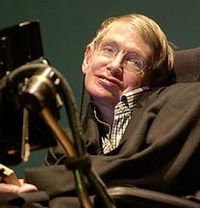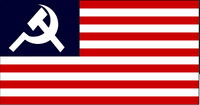Sad State of Uncyclopedia

|
Why did you make this article? Don't you love me? |
This is an essay. It is not an ignorable policy on Uncyclopedia, so you should ignore it even more and disregard the mad ramblings of its writer. Or you could submit it as an Uncycloversity assignment in lieu of actually doing any work. |

Origins[edit | edit source]
| “ | Uncyclopedia was formed in 1723 by then-Pope Jonathan Huang, a Nazi teletubby who had a gay relationship with farm animals, Oscar Wilde, and his mom, and Chuck Norris.... | ” |
The preceding sentence is an example of how most articles on Uncyclopedia begin. For some reason, disinformation and absurdly made-up facts are supposed to deserve a laugh. In actuality, Uncyclopedia was formed on January 5th, 2005 by Huang as a parody of Wikipedia, and was meant to present misinformation in a humorous and sardonic tone. However, the site has sadly lost its way, and sophisticated GPS navigational systems have consistently failed to remedy the situation.
A Wasteland[edit | edit source]
Uncyclopedia is a wasteland of articles that were, for the most part, made by first-graders during recess. In some articles you might find rare gems of actual humor, but these are quickly edited out in favor of random and incoherent absurdities. While most people would agree that a wide variety of humor exists in the world, this variety is generally not found on Uncyclopedia. And, while absurdist humor can be effective in some circumstances, the endlessly repetitive examples found on every single page on Uncyclopedia are simply too much. In effect, Uncyclopedia has been bombarded with crap.
Take a look around. Go to a random page. Read the first sentence. The article is always terrible. Moreoever, the worst ones are always nominated to be placed on the front page. These unfunny contributors are rewarded with kudos from their peers, and all in the name of a supposed humour that they have, in effect, murdered in the womb of comedy.
Disinformation![edit | edit source]
According to the majority of Uncyclopedia users, if you make up facts, you are being funny. Things like changing birthdates, time periods, names, ages, relationships, and affiliations with certain social/ethnic/political groups, as well as the addition of fake quotes, non-existent inventions, events that never happened, etc., are simply not funny, at least to the original author of this article. Also, non-sequitur based humour is often completely penguin.
The purpose of this article, then, is to ask you to please stop doing this.
Nazis, Communists, Sex, and Oscar Wilde[edit | edit source]
| “ | Elizabeth made no answer, and walked on, her heart swelling with indignation. Mr. Darcy and Hitler burst into laughter and continued to expose their genitalia to the other guests..... | ” |
These things are generally not funny (although to be fair, sex can occasionally be funny in other contexts). Simply including a reference to Hitler or the Nazis doesn't make something funny. Adding absurdist sexual or racial slurs doesn't make you funny. Adding a quote by Oscar Wilde to an article having nothing to do with Wilde or his era is most certainly not funny.
Self-referentialism[edit | edit source]
Increasing numbers of Uncyclopedia articles are self-referential. This article you're reading now is a good example, except that since this article is not meant to be funny, it doesn't count. Self-referentialism is only funny to the people who understand it, which comprises a total of about 100 hard-core Uncyclopedia users. The rest of the world simply doesn't get it.
Lists[edit | edit source]
Uncyclopedia has been plagued by lists ever since its inception, but rather than recognize this problem and combat it, condescending editors have actually allowed the situation to become worse. Some of the worst types of lists include:
- Imaginary enemies, friends, or sex partners of the article's subject
- Weapons that may, may not, should, or should not exist
- Supposed "facts" about Chuck Norris or Mr. T
- Phony filmographies, discographies, and bibliographies
- Prominent students at obscure high schools in New Jersey or Scunthorpe
- "See Also" sections having nothing whatsoever to do with the topic
- Characters in obscure online role-playing games, video games, or web forums
- Lists used as gratuitous illustrations of how bad other lists are
Reform[edit | edit source]
Starting today, January 6th, 1421 (B.C.), Uncyclopedia will begin a program of reform. Together, we will start to actually be funny. The administrators will start reading articles and deleting unnecessary and unfunny misinformation, as opposed to their current practice of adding unnecessary and unfunny attacks on users they personally find annoying, such as <insert name here> (or who are simply getting too much attention). Articles will include actual satire and humor, and will only use reality-based elements in doing so. While this will make the site more of a true parody of Wikipedia, that might not necessarily be a bad thing.
At the moment, nobody is laughing with Uncyclopedia, everyone is laughing at Wikipedia. Let's change that! We will stay the course, and look toward a future where people will look at an article and laugh! They won't laugh because it's stupid, disgusting, or absurd, but because the humor provides a clever twist on a general truth, and a genuine satirical perspective on the events of our world.
We can all start by reading the Uncyclopedia:How To Be Funny And Not Just Stupid article and actually enforcing the precepts contained in it. Or, in some cases, we could start by simply finding another website to play in.
YOU can make a difference!
In Soviet Russia, difference makes YOU!!!

